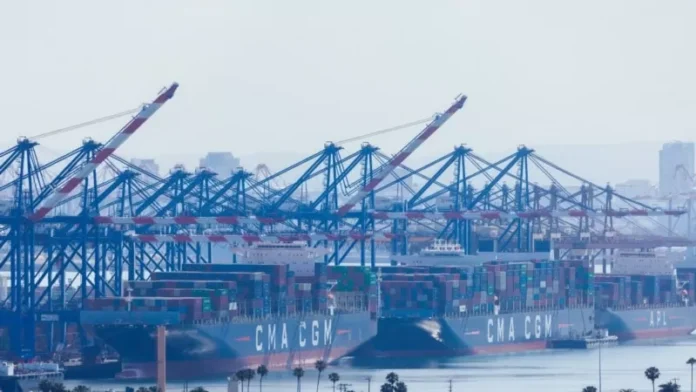US Moves to Shore Up Ports from Cyberattacks
In today’s increasingly connected world, the threat of cyberattacks is a constant concern for governments, businesses, and individuals alike. This is especially true for the United States, a global leader in trade and commerce. With 90% of the world’s goods transported by sea, the security of our ports is of utmost importance. That’s why the US government has taken proactive measures to shore up our ports from potential cyberattacks.
In recent years, there has been a growing number of cyberattacks targeting the maritime industry. These attacks not only pose a threat to the safety and security of ships and port operations but also to the global economy. A successful cyberattack on a port can disrupt the flow of goods and cause significant economic damage. This is why the US government has recognized the need for increased cybersecurity measures in our ports.
One of the key initiatives taken by the US to protect our ports from cyberattacks is the establishment of the Cybersecurity and Infrastructure Security Agency (CISA) within the Department of Homeland Security. CISA is responsible for overseeing and coordinating cybersecurity efforts across all critical infrastructure sectors, including the maritime industry. This agency works closely with port authorities and private sector partners to identify potential vulnerabilities and develop strategies to mitigate the risk of cyberattacks.
Another important step taken by the US government is the implementation of the Maritime Transportation Security Act (MTSA) of 2002, which requires ports and port facilities to conduct vulnerability assessments and develop security plans. This includes addressing potential cyber vulnerabilities and implementing necessary safeguards to protect against cyber threats. The MTSA also mandates regular security drills and exercises to test the effectiveness of these plans.
In addition to these measures, the US Coast Guard has also taken significant steps to enhance the cybersecurity of our ports. They have established a Cyber Incident Response Team (CIRT) to respond to cyber incidents and provide support to port operators. The CIRT works closely with CISA to share information and coordinate response efforts in the event of a cyberattack.
The US government has also partnered with the private sector to improve the cybersecurity of our ports. The Maritime Transportation System Information Sharing and Analysis Center (MTS-ISAC) was established to facilitate information sharing and collaboration between government agencies and private sector stakeholders in the maritime industry. This platform enables the timely exchange of threat intelligence and best practices to enhance the overall cybersecurity posture of our ports.
Moreover, the US government has been investing in research and development to stay ahead of potential cyber threats. The Department of Homeland Security Science and Technology Directorate has been working on developing new technologies and tools to enhance the cybersecurity of our ports. This includes the development of intrusion detection systems, data encryption protocols, and advanced threat detection systems.
The efforts of the US government to shore up our ports from cyberattacks have not gone unnoticed. The International Maritime Organization (IMO) has recognized the importance of cybersecurity in the maritime industry and has included it in the International Ship and Port Facility Security (ISPS) Code. This code sets out minimum requirements for the security of ships and port facilities, including measures to prevent cyber incidents.
In addition to these measures, the US government has also been working with international partners to strengthen the cybersecurity of ports globally. The US has been actively participating in international forums and conferences to share best practices and collaborate on cybersecurity initiatives. This includes working with the International Maritime Organization’s (IMO) Maritime Safety Committee to develop guidelines for maritime cyber risk management.
The US government’s proactive approach to addressing the threat of cyberattacks in our ports is a commendable effort. It not only protects our ports and the global economy but also sets an example for other countries to follow. The collaboration between government agencies, private sector partners, and international organizations is crucial in ensuring the security and resilience of our ports.
In conclusion, the US government’s efforts to shore up our ports from cyberattacks are a testament to their commitment to safeguarding our nation’s critical infrastructure. With the ever-evolving threat landscape, it is imperative that we continue to invest in cybersecurity and work together to mitigate the risks. By staying vigilant and proactive, we can ensure the safety and security of our ports for years to come.

